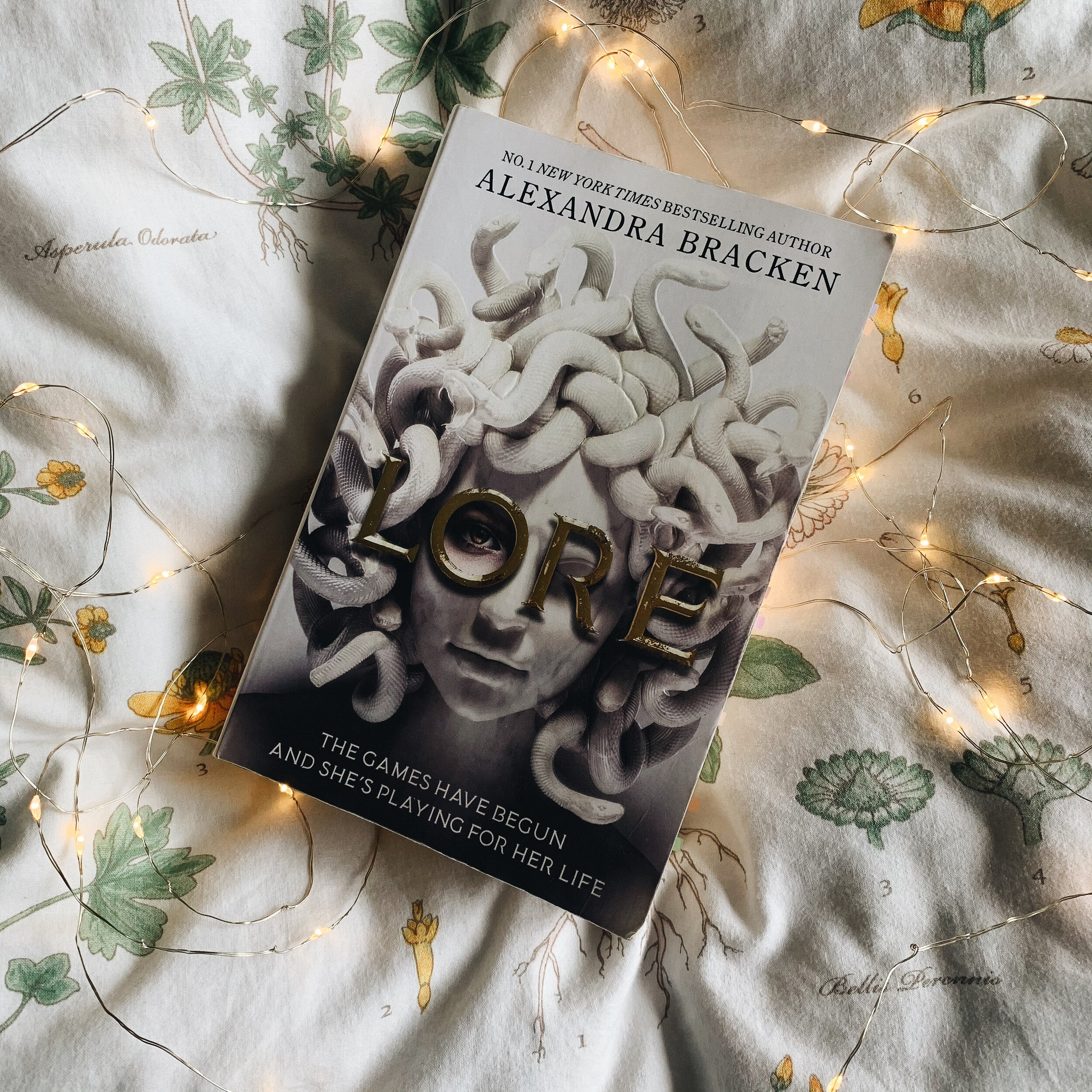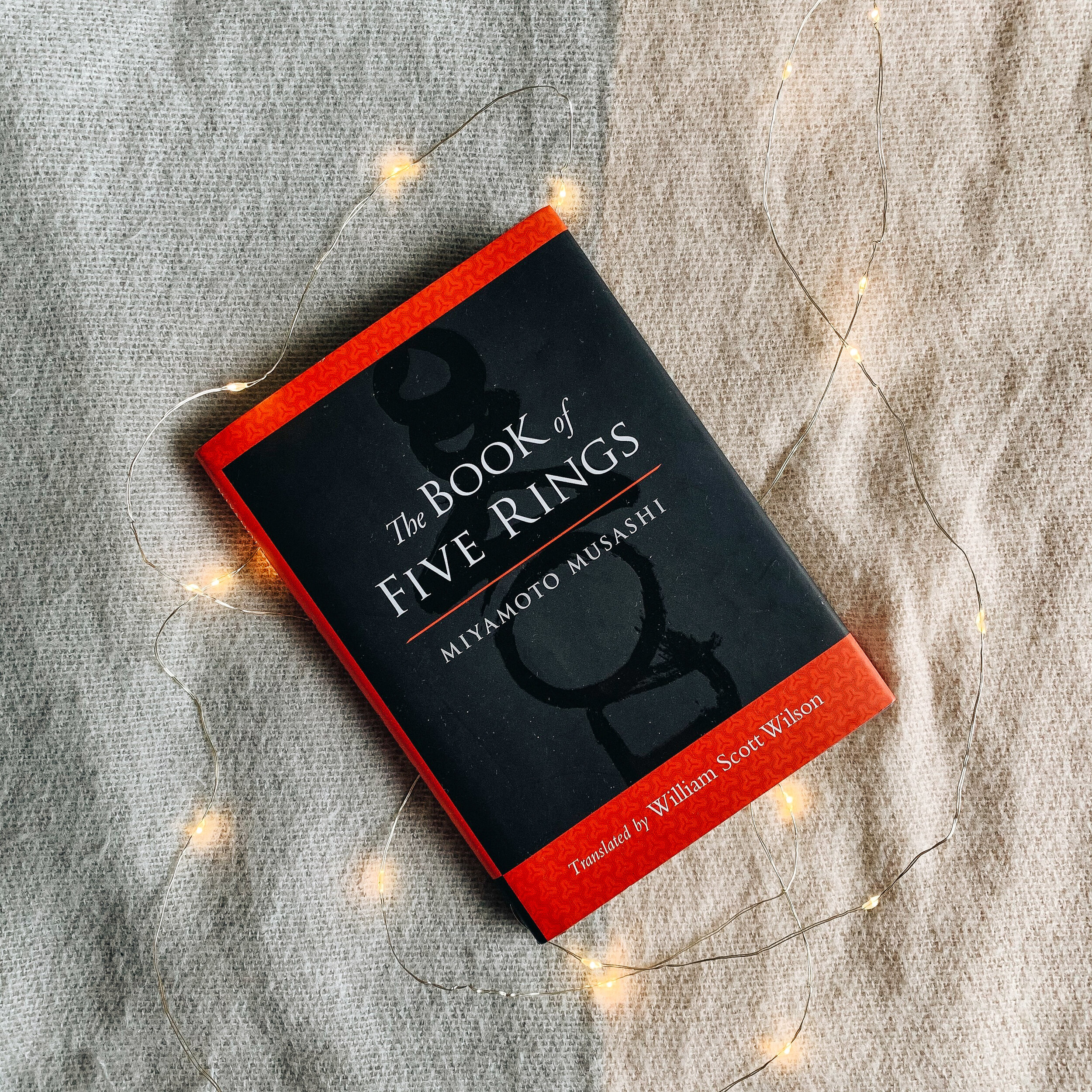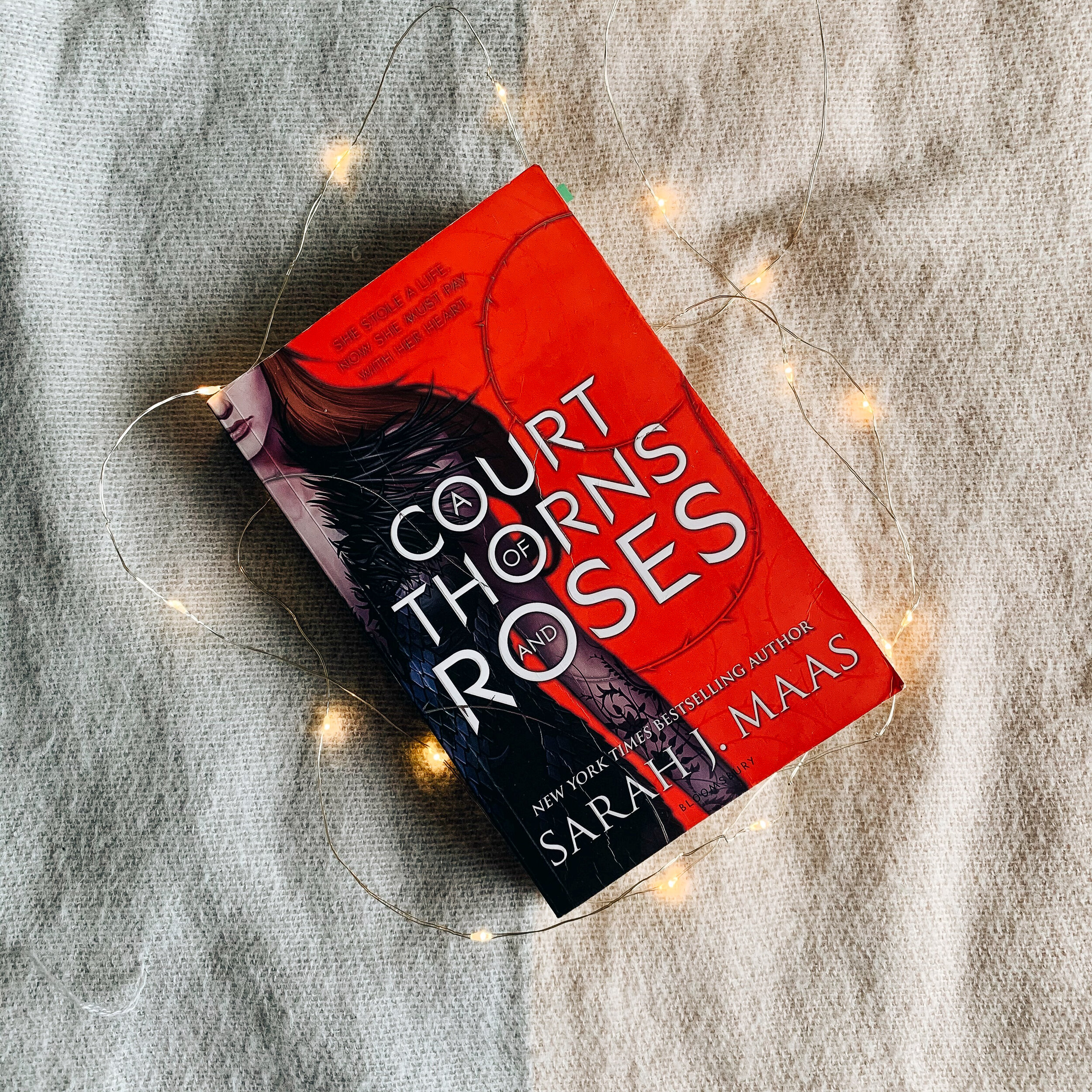★★★★☆
Lore by Alexandra Bracken was described to me as a Greek Mythology x Hunger Games vibe, and honestly, after reading it, I agree wholeheartedly. Every seven years, nine of the 12 Olympians are turned mortal and sent to earth for one week, in an event called the Agon. During the Agon, the mortal bloodlines of infamous Greek heroes such as Perseus, Odysseus, and Achilles hunt the gods, and if they kill one, they assume the gods’ immortality and power. Lore Perseous left that life many years ago, but when her friend Castor (whom she assumed was dead) and a gravely injured Athena both turn up in her life at the beginning of the Agon, she is thrust back into the world she truly hoped she had left for good.
I always find it easier to talk about things that I didn’t like (I don’t know why that is), but for this book, there was only a couple of things, so let’s start with them! The first was the writing itself, every now and then Bracken would write something like ‘half-past eleven o’clock,’ and I feel like the ‘o’clock’ just feels off-kilter. Also, there were a number of instances where I had to re-read a sentence because the phrasing just didn’t make any sense to me. I would also say that it’s quite a long book (my edition is 547 pages), but it only covers 7 days in total (although there are flashbacks throughout the story). I had a recommendation from Erica that it isn’t a book you can draw out, it’s best read in as little sittings as possible, and honestly, I agree! I read the first 270 pages in around three weeks, and the last 270 pages in about 5 hours, and I enjoyed the second half of the book more than I enjoyed the first half! I would have LOVED more to do with the new gods, I feel like they could have taken more space in this story than they did. I also feel like this book could have been improved with multiple points of view (although to be fair, I think this about most books I read that are only a single POV). Reading parts of this from the eyes of someone like Miles who is ‘unblooded’ and just thrust into this world, or Castor who goes through such an incredible arc could have added a bit more substance into the world building and the Agon.
‘It was a morbid sort of marathon relay, with immortal power as the baton being passed between bloodlines.’
Alexandra Bracken
Okay, on to all of the good stuff!! This book was so action-packed, but it never felt overwhelming. This was such a fresh and unique way of bringing Greek gods and Greek mythology into an urban setting, which actually took me a bit to get used to. The idea that the gods could be killed, and then when a human took their powers they also chose a new name for themselves and would be referred to as ‘the new Dionysus’ for example is so different from any other book I’ve read. I loved the fact that Bracken kept this story in the world we know, and if you were from New York, I can only assume that the places and street names mentioned would have been very familiar!
I think one of the things that really struck me was the bloodlines, and their beliefs. These groups of people are all descendants of these ancient heroes, heroes that we would be familiar with, but they’re living in the world we know today. They descend from these great heroes and they believe in the Greek gods, yet their religious practices and social order barely altered in over 2,000 years. I found the contrast between these families believing in archaic systems of men basically owning women, and prohibiting women to be heads of the family or in any position of power, with the modern world which is working SO HARD to disestablish these ideas to be pretty shocking. There is this one scene in one of the flashbacks that literally made my skin crawl. the inequality between men and women that we are still fighting today has been an integrated part of societies for as long as history traces back. We are aware of the lack of choice, of voice, and of freedom that women were given in most (not all) ancient societies and no one today pretends that the way ancient societies functioned wasn’t inherently misogynistic. But reading these antiquated beliefs functioning in the modern world, with most of the characters accepting it because ‘that’s the way their world is’ was much harder than I thought it would be.
‘she was merely reborn as a being who could gaze back at the world, unafraid’
Alexandra Bracken
The occasional banter in this book was such a highlight, plus the way the main characters Lore, Castor, Miles, and Van all converged in a very cute, found family sort of way. The way the four of them all worked together, and worked to each other’s strengths was a dynamic in this story which I really, really enjoyed. Although, I was never really sold on Lore’s friendship with Iro. I just didn’t feel the depth of their relationship like I did with her and Miles, Castor, and even Van. Having Athena as the main god that Lore interacts with was such an interesting choice, one that I really liked. Athena is the goddess of strategic warfare, wisdom, crafts, and defender of cities and towns. Many of her responsibilities lend themselves to the story which played out in Lore, and I thought she was the perfect choice. I thought the character of Lore was so multi-faceted and three-dimensional. Her constant battle between avenging her family, her guilt, her need for survival, her desire for a normal life, and her inability to forget who she is and who she was brought up to be makes this book even more interesting. Reading from the point of view of a character so conflicted was so compelling, and one of the best parts of this book.
“Sometimes the braver thing is to accept help when you've been made to believe you shouldn't need it.”
Alexandra Bracken
At one point, Lore brings up Athena’s history and her tendency to give her favour to male heroes, and, using the example of Medusa, her history of turning her back on women. This was another moment for me where the issues of Greek Mythology came rushing back in stark contrast to the modern world. The story of Medusa isn’t often depicted as a happy one. The beautiful Medusa (one of the three gorgons) was seduced by the god of the oceans, earthquakes, and horses, Poseidon, in a temple to Athena. In retaliation for desecrating her temple, instead of punishing Poseidon, she turned Medusa into a monster with snakes for hair and the ability to turn people to stone with one look. The face of Medusa was depicted on Athena’s shield, known as an Aegis, and is the symbol of the House of Perseus (Lore’s bloodline). The plotlines, character motivations and underlying mythological background interwoven throughout this book keeps you constantly on your toes as more information is revealed. It is an intricate balance of modern life, ancient beliefs, and an epic hunt, and Bracken executed it brilliantly. If you want a book that brings ancient myths, gods, and beliefs into an urban setting like you’ve never seen it before, this is the book for you. If you’ve read it, let me know your thoughts in the comments, or you can find me on Instagram at @kell_read!












